- Home
- slideshows
- miscellaneous
- 15 books Bill Gates says you should read this summer
15 books Bill Gates says you should read this summer
"Everything Happens for a Reason" by Kate Bowler

"Leonardo Da Vinci" by Walter Isaacson
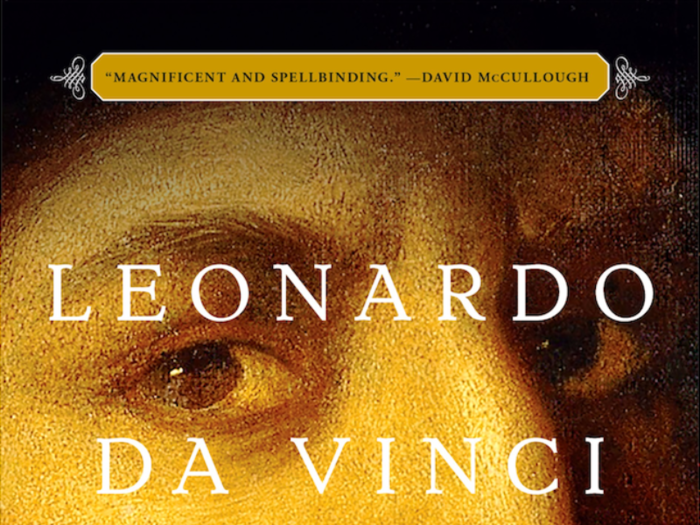
Gates called Leonardo da Vinci, the famous renaissance polymath, "one of the most fascinating people ever," in a blog post in May.
That's likely why he recommends Walter Isaacson's painstakingly researched biography, "Leonardo da Vinci."
Gates writes:
"Isaacson does the best job I’ve seen of pulling together the different strands of Leonardo’s life and explaining what made him so exceptional. A worthy follow-up to Isaacson’s great biographies of Albert Einstein and Steve Jobs."
"Origin Story: A Big History of Everything" by David Christian
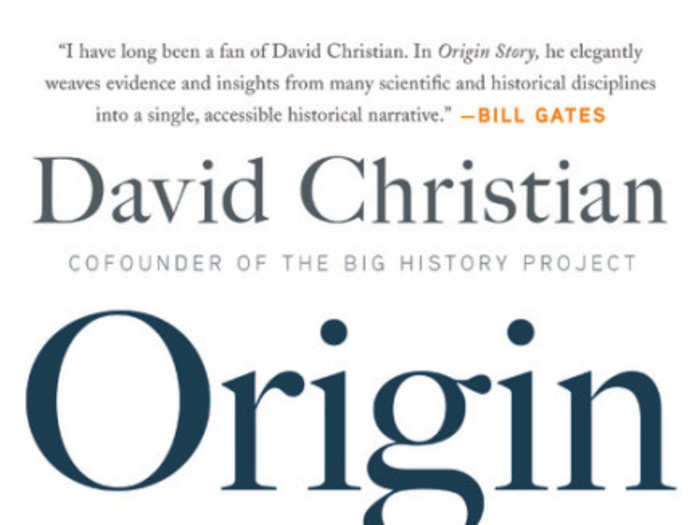
Gates said historian David Christian's "Origin Story" will leave you with a "greater appreciation of humanity's place in the universe," in a May blog post.
Christian also teaches an online course based on the book, Big History, which tells the story of the universe from the Big Bang all the way through to the modern era.
Gates said "Origin Story" pairs perfectly with the course as a "great refresher" of the material.
"Lincoln in the Bardo" by George Saunders
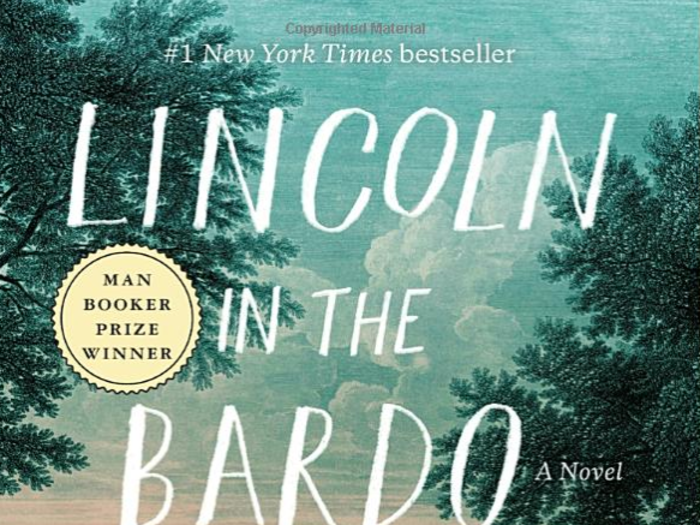
George Saunders' most recent novel, "Lincoln in the Bardo," made Gates "rethink" what he knew about President Abraham Lincoln.
"I got new insight into the way Lincoln must have been crushed by the weight of both grief and responsibility," Gates wrote on his blog in May. "This is one of those fascinating, ambiguous books you’ll want to discuss with a friend when you’re done."
The unique novel is structured as a conversation among hundreds of ghosts, including Lincoln's deceased son.
"I got new insight into the way Lincoln must have been crushed by the weight of both grief and responsibility," Gates wrote.
"Factfulness" by Hans Rosling
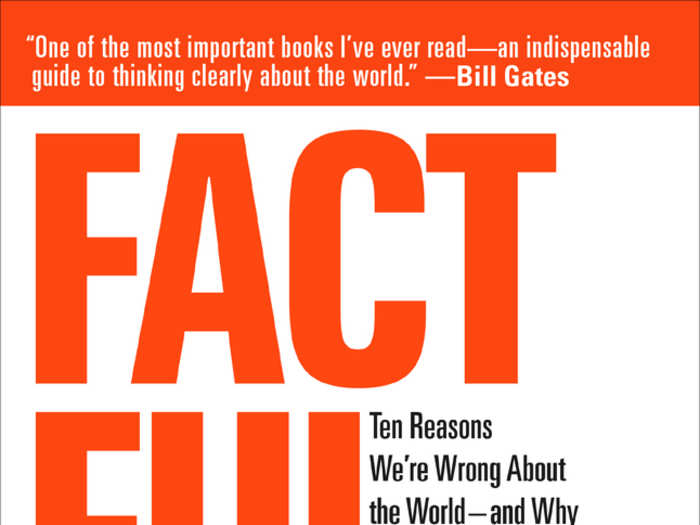
A doctor and statistician by training, Rosling argues in his book "Factfulness" that people are collectively taking an overly emotional view of the world. Using statistics, Rosling shows how humanity is constantly improving based on birth rates, life expectancy, and the gender wage gap.
Gates wrote on his blog in May that he's been recommending this book since "the day it came out."
Rosling, a global health expert, unfortunately, passed away last year. Gates said on his blog that this book is "a fitting final word from a brilliant man, and one of the best books I've ever read."
"Hillbilly Elegy" by J.D. Vance
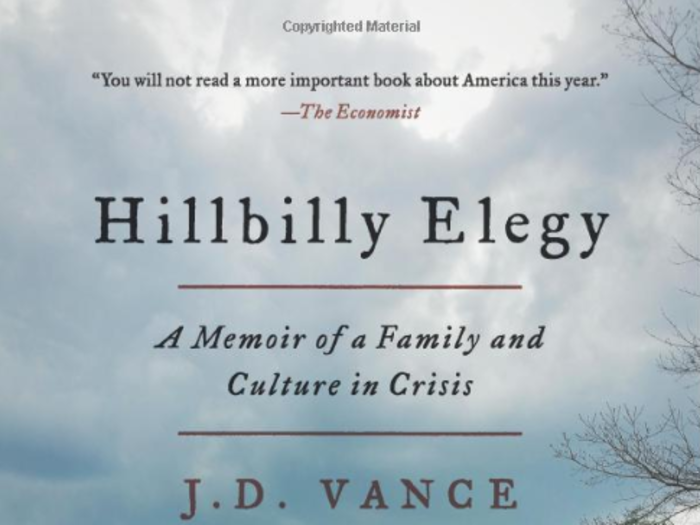
J.D. Vance's book, "Hillbilly Elegy," details his experience growing up in near-poverty in rural Ohio. He became a marine, went to Yale Law School, and now works as a venture capitalist. Vance's memoir seeks to explain what life is like for the working poor and how that sheds light on the current political climate in the US.
Gates wrote on his blog last year that Vance's book "offers insights into some of the complex cultural and family issues behind poverty."
He added that the "real magic lies in the story itself and Vance’s bravery in telling it."
"A Full Life" by Jimmy Carter
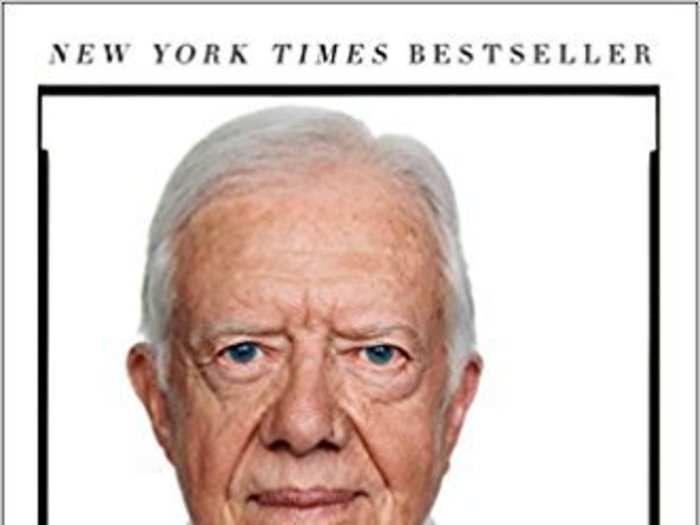
After having written dozens of books already, President Jimmy Carter's memoir about growing up in the small town of Plains, Georgia, still reads as a quick, impressive book, Gates writes.
"I loved reading about Carter’s improbable rise to the world’s highest office," Gates wrote on his blog last year. "The book will help you understand how growing up in rural Georgia in a house without running water, electricity, or insulation shaped—for better and for worse—his time in the White House."
"A Full Life feels timely in an era when the public’s confidence in national political figures and institutions is low," he added.
"Born a Crime" by Trevor Noah
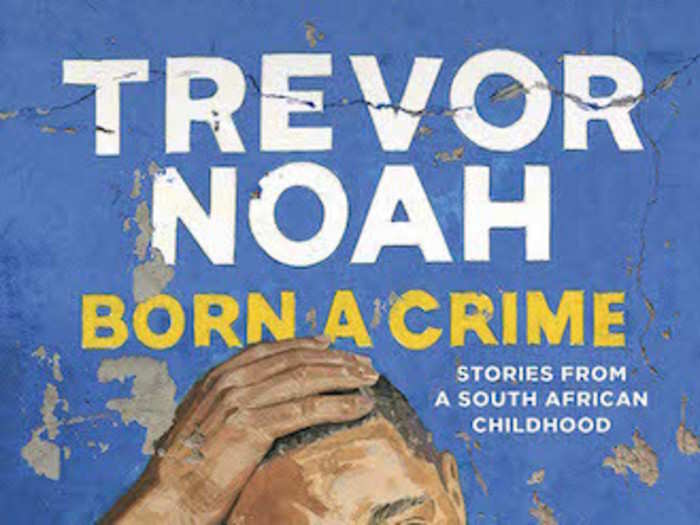
Gates said he's a longtime fan of The Daily Show's host, Trevor Noah, on his blog last year.
"I loved reading this memoir about how its host honed his outsider approach to comedy over a lifetime of never quite fitting in," Gates said of Noah.
Noah was born to a black South African mother and a white Swiss father in apartheid South Africa, in an era when mixed-race relationships were frowned upon.
"Much of Noah’s story of growing up in South Africa is tragic," Gates said. "Yet, as anyone who watches his nightly monologues knows, his moving stories will often leave you laughing."
"Homo Deus" by Yuval Noah Harari
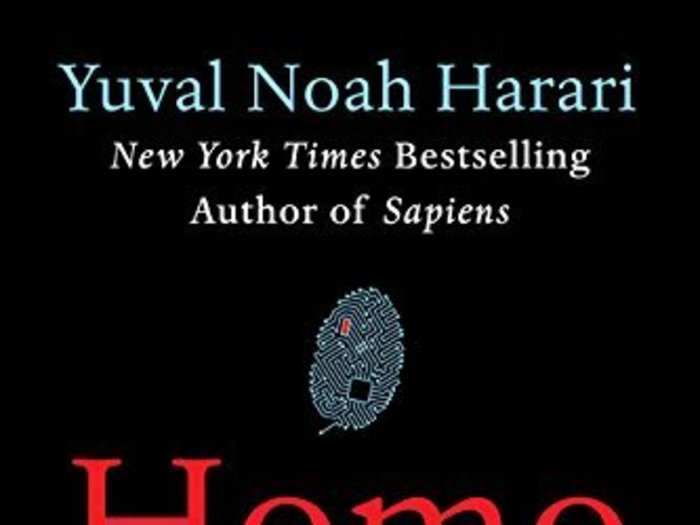
Yuval Noah Harari, an Israeli historian, is one of Gates' favorite authors. He previously recommended Harari's first book, "Sapiens" and said on his blog last year that Harari's newest book, "Homo Deus" is a "smart look at what may be ahead for humanity."
"So far, the things that have shaped society—what we measure ourselves by—have been either religious rules about how to live a good life, or more earthly goals like getting rid of sickness, hunger, and war," Gates writes about the book.
"What would the world be like if we actually achieved those things?" he added.
"The Heart" by Maylis De Kerangal
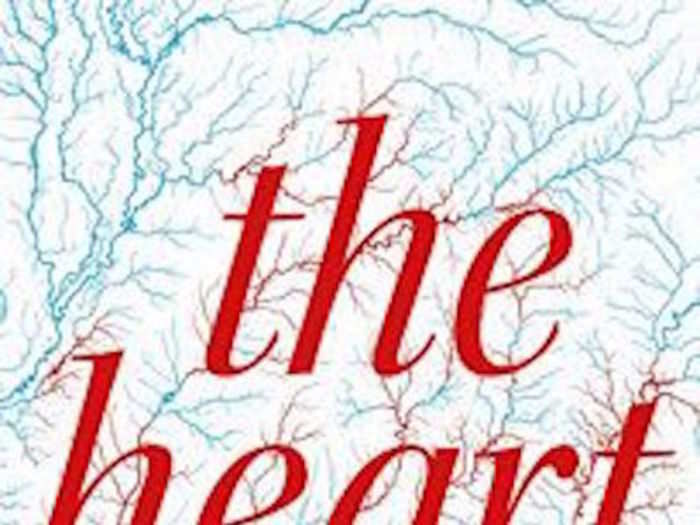
While Gates said he mostly reads nonfiction, he loved Maylis de Kerangal's "The Heart."
"While you’ll find this book in the fiction section at your local bookstore, what de Kerangal has done here in this exploration of grief is closer to poetry than anything else," Gates wrote on his blog last year.
The de Kerangal book tells the story of a heart transplant, after a young man is killed in an accident and his parents decide to donate his heart.
"The book uses beautiful language to connect you deeply with people who may be in the story for only a few minutes," Gates said.
"String Theory" by David Foster Wallce
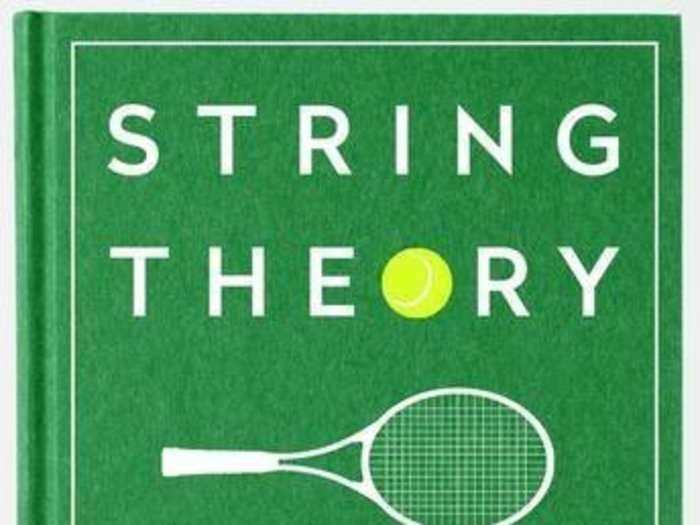
The late David Foster Wallace is a tricky author — his works can be long, epic, and meander from subject to subject.
But, his "ability to use language is mind-blowing," Gates wrote in a 2016 review of Wallace's meditation on the sport of tennis, "String Theory."
"He’s an artist who approaches a canvas with the exact same oil paints everyone before him has used and then applies them in breathtaking new and creative ways," Gates said.
"Shoe Dog" by Phil Knight
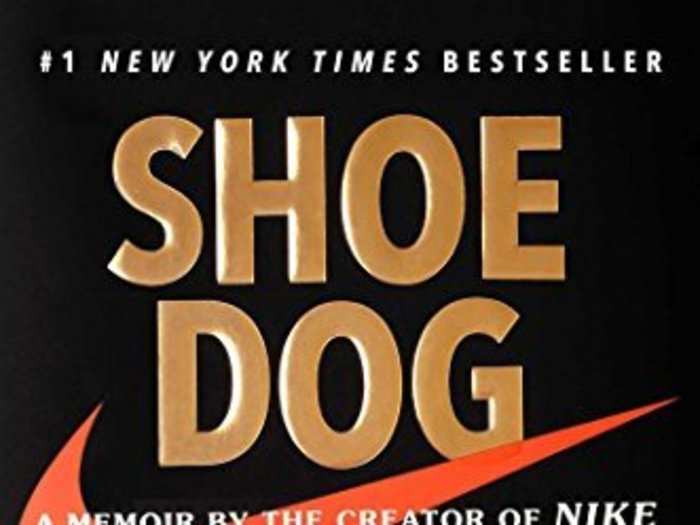
Phil Knight is a one-of-a-kind CEO. He tells the story of how he built Nike into a multibillion-dollar, globe-spanning business in "Shoe Dog," a book Gates recommended in 2016.
"He doesn’t fit the mold of the bold, dashing entrepreneur. He’s shy, introverted, and often insecure," Gates writes.
"And yet, in spite of or perhaps because of his unusual character traits, he was able to realize the "Crazy Idea," as he calls it, to do something different with his life and create his own shoe company."
"The Gene" by Siddhartha Mukherjee
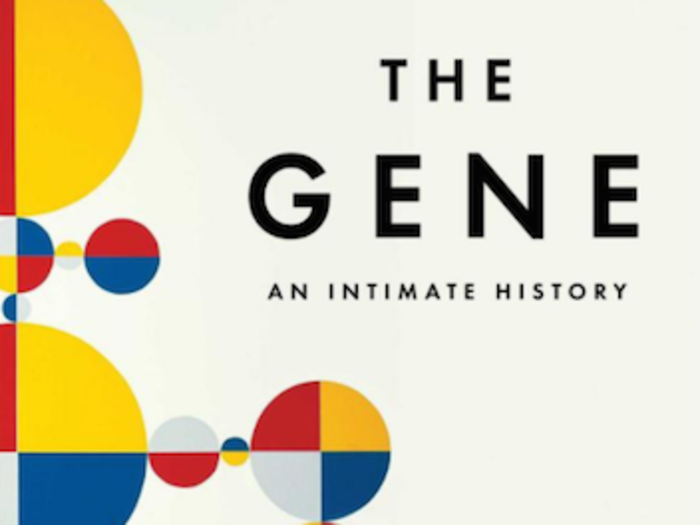
Siddhartha Mukherjee, a professor at Columbia University's School of Medicine, is a "quadruple threat," according to Gates.
"Doctors are deemed a “triple threat” when they take care of patients, teach medical students, and conduct research. Mukherjee, who does all of these things at Columbia University, is a “quadruple threat,” because he’s also a Pulitzer Prize-winning author," Gates wrote in a review for Mukherjee's "The Gene" in 2016.
In the book, Mukherjee takes the reader on a journey through the "past, present, and future of genome science," Gates writes, "with a special focus on huge ethical questions that the latest and greatest genome technologies provoke."
"The Myth of the Strong Leader" by Archie Brown
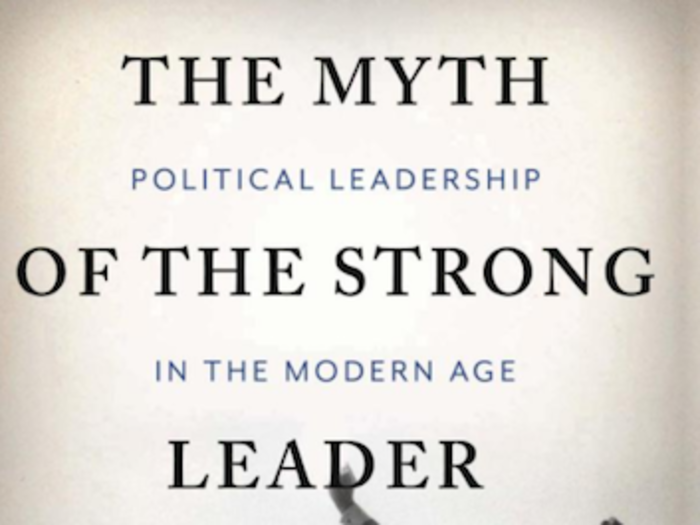
Author Archie Brown's 2014 study on history's greats leaders yielded some surprising results, Gates writes in his 2016 review of "The Myth of the Strong Leader."
"rown shows that the leaders who make the biggest contributions to history and humanity generally are not the ones we perceive to be strong leaders," Gates wrote.
"Instead, they tend to be the ones who collaborate, delegate, and negotiate—and recognize that no one person can or should have all the answers," he added.
It's a lesson that many of today's global leaders could appreciate.
"The Grid" by Gretchen Bakke
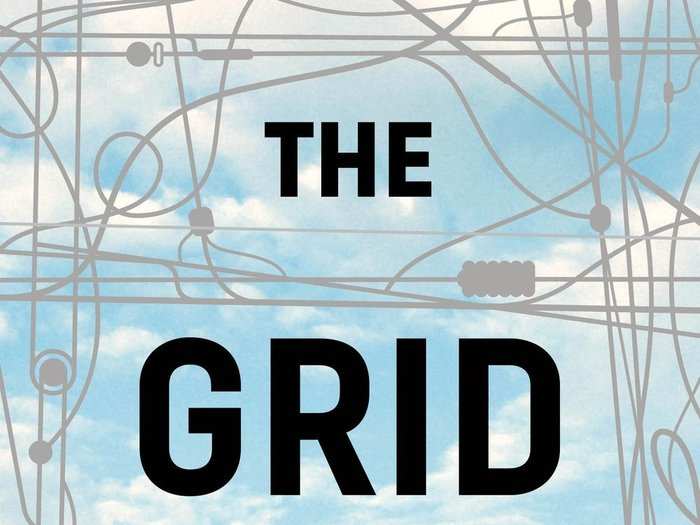
Gates is a proud nerd, and nowhere is that more evident than in his enthusiastic praise for Gretchen Bakke's book about our electrical infrastructure.
"This book, about our aging electrical grid, fits in one of my favorite genres: “Books About Mundane Stuff That Are Actually Fascinating," Gates said in a 2016 blog post.
"Even if you have never given a moment’s thought to how electricity reaches your outlets, I think this book would convince you that the electrical grid is one of the greatest engineering wonders of the modern world," Gates wrote.
"I think you would also come to see why modernizing the grid is so complex and so critical for building our clean-energy future," he added.
Popular Right Now
Popular Keywords
Advertisement